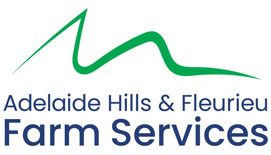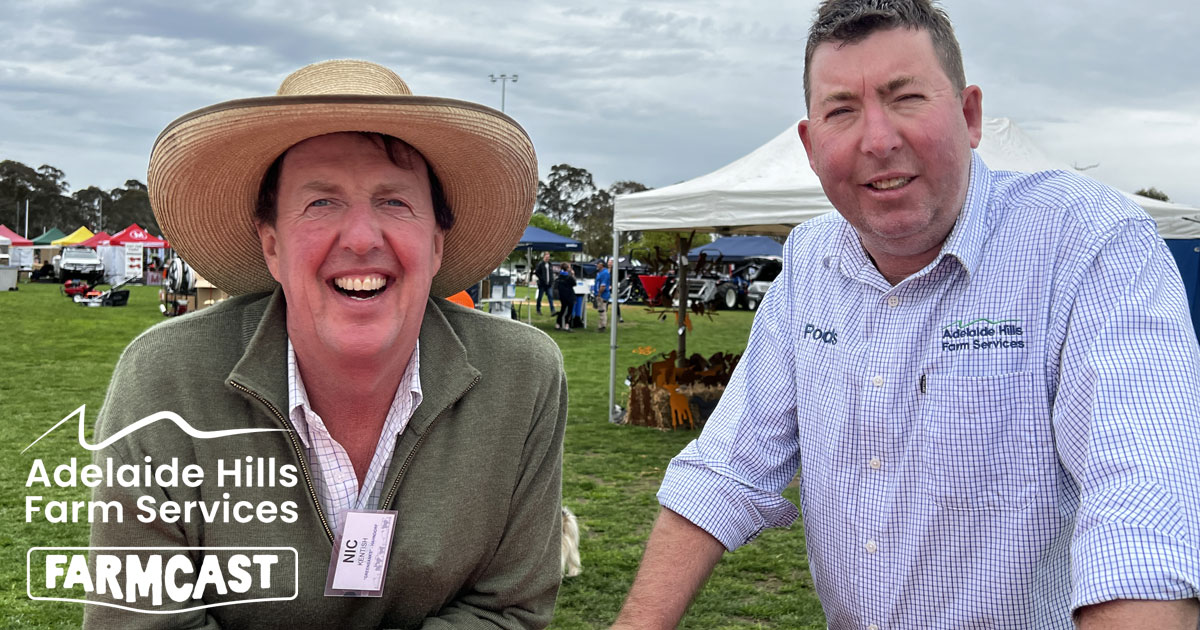
This month’s Farmcast is a cracker! I had Pods in the studio (aka – cramped home office) because the rain had stopped work outside again.
So I had his help in recording the Almanac and it was good to get some information about what weeds can be sprayed this time of year directly from him.
We went to the Small Acreage Field Day in late September and recorded a number of interviews. We’ve included three of them here; Arnd from Mobishear Australia; Megan from Dairy Goats Society of South Australia and Nic Kentish from RCS Australia. We’ll hold over the other interviews for another Farmcast down the track.
We hope you find this show helpful and welcome your comments below or email Belle or Pods at hello@ahfarmservices.com.au
You can play the episode, below, or search for Adelaide Hills Farmcast in your favourite podcast app, on Spotify, Apple Music, etc.
00:00 Adelaide Hills Farmcast October Edition
Introduction
02:35 Adelaide Hills Farm Almanac / Farm Calendar
Livestock
-
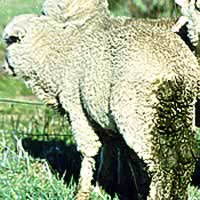
Fly Blown Sheep Spring is a notoriously bad time for fly strike in your sheep. And yes – even your pet Dorpers and other self-shedding sheep are prone to fly strike. One of the early signs to look out for is ‘Unthrifty Sheep’. According to the Natural Resources and Environment Tasmania an unthrifty sheep is one that is not eating properly, is losing condition, tends to lag behind the mob when moved and, in severe cases, is clearly weak. A worm problem often (but not always) results in sheep scouring and becoming daggy. Flyboss.com.au is a wonderful resource for determining the correct treatment of fly blown sheep.
Alpacas
- It’s time to shear your Alpacas or if you’re not doing it yourself, you’ll need to book in a shearer. The South Australian Alpaca Association website lists a number of Alpaca Shearers, you’ll be sure to find one that’s available.
- Mobishear interview.
Gardens
My garden is struggling to thrive because I’ve got rabbits roaming around like they own the place…and we have so much clay. I’m adding a mix of Gypsum, sandy/loam and compost in areas that we intend to plant next year. I had thought I was going overboard a little, but then a Google search reviled this short instructional video by ABC Gardening back in 2016. I think I might be on the money.
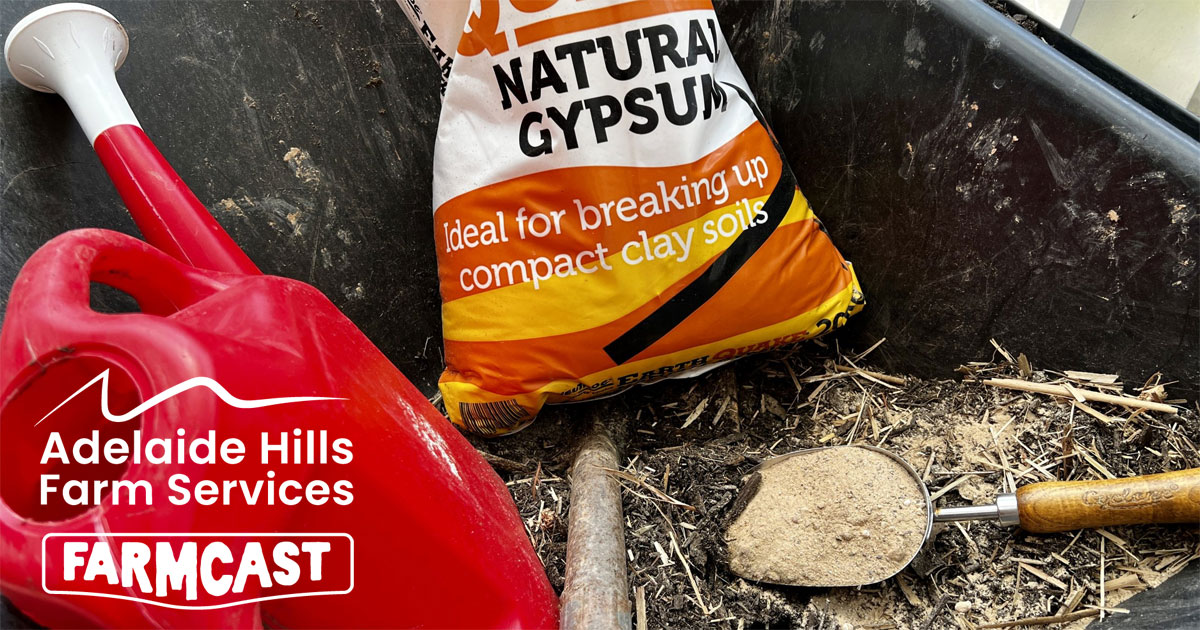
Horses
- Let me tell you about a few fun problems that horses can have when they spend extended time on muddy and wet ground!
- Greasy heel or mud fever. It presents as lesions, a greasy appearance, or hair loss on lower limbs typically around heels. Treatment is an antibacterial wash and keeping the horse off wet ground.
- Thrush is another one and is easily diagnosed by a foul smell from the hoof, and discharge from the frog. Treatment is best in the form of thoroughly cleaning the hooves, treating them with an iodine solution and making sure that dirty stable bedding is replaced with clean dry bedding.
- Hoof abscesses present as acute lameness in a particular leg, often as the result of eliminating lameness further up the leg. The use of hoof testers or a farrier may be needed to accurately diagnose the abscess.
Spot & Boom Spraying
- Pods says you should be doing know-down spraying along fence lines, around stock yards etc with a glyphosate. Including silver grass, barley grass, brome grass and rye grass.
- Pods also suggests that, like Prue from Echunga who rang up during our FIVEaa interview with Richard Pascoe (link to the FIEaa interview HERE), its time to start thinking about spraying your Blackberry.
Bush Fire Preparation
- A light reminder to make a start…
- If you need your paddocks slashed, we recommend you call Jake from Adelaide Hills Slashing. In addition to his slasher, Jake has invested in a remote control (industrial) lawn mower that can handle inclines of up to 55 degrees.
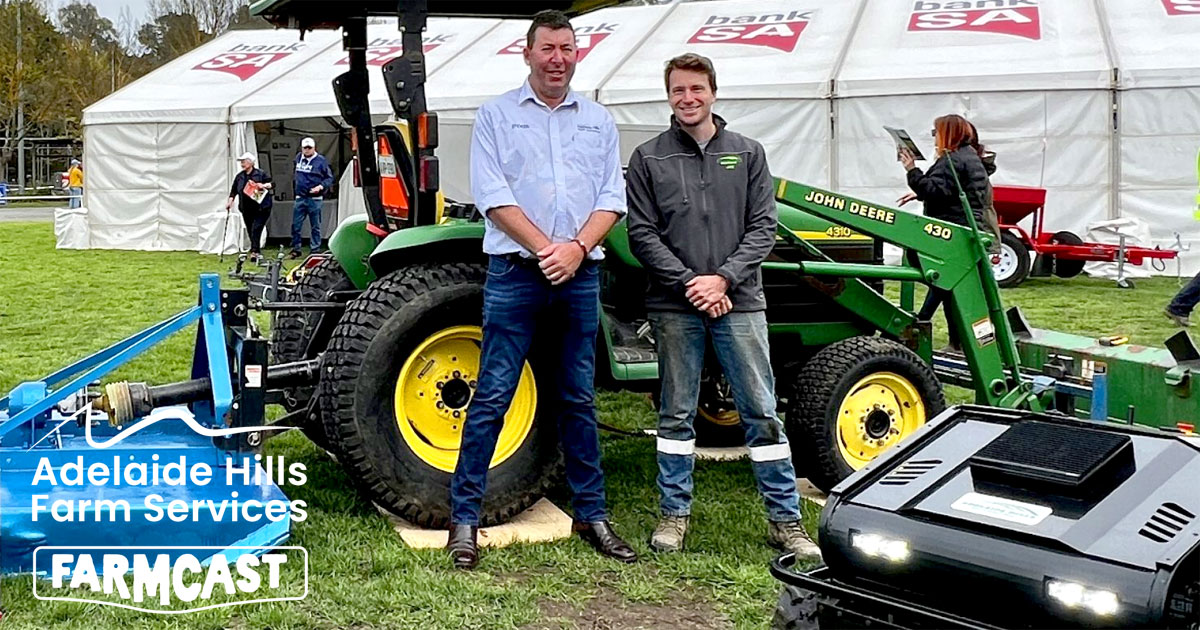
Farmcast Interview: Pods and Megan Miller from the Dairy Goat Society of SA
It was wonderful to talk with Megan and get a better understanding of goat breeds and what each breed is used for. The most fascinating thing we learnt was
Goats do NOT make good lawnmowers. Goats are browsers like deer, not grazers like sheep. The best breed to mow your lawn is a Victa. (Or a John Deere Zero-Turn Lawnmower…)
Please note: We had technical issues with Megan’s interview, so we’ll need to regroup with her because she had some very enlightening things to share. Can we say the goat ate our homework?
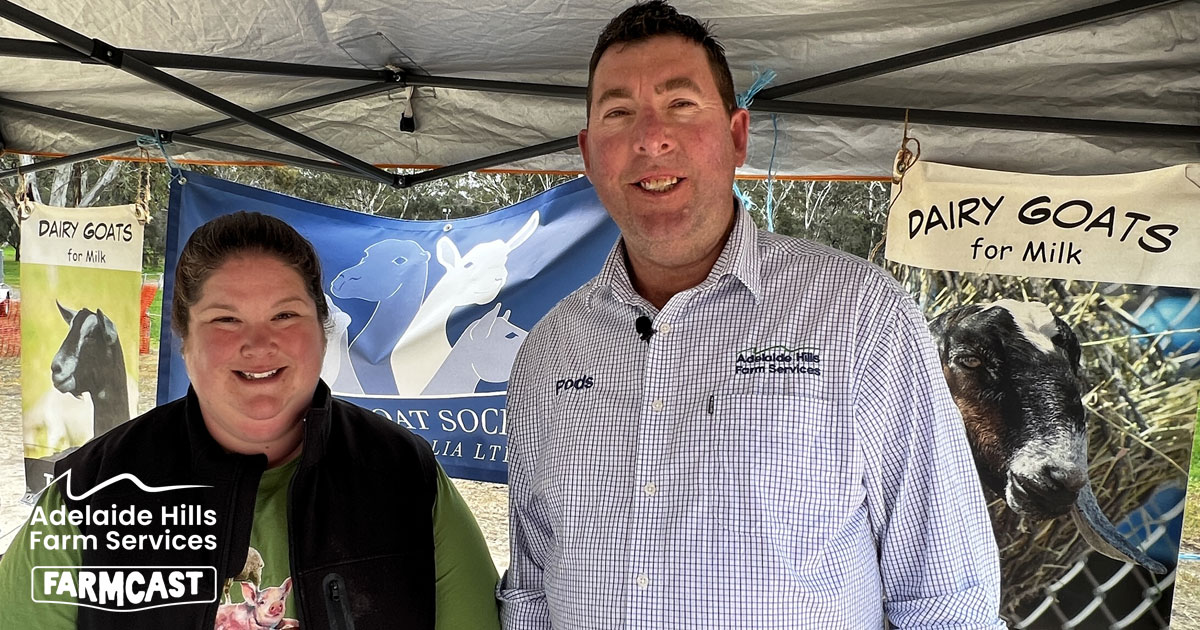
20:51 Farmcast Interview: Pods talks with Nic Kentish from RCS & the Rotary Club of Stirling
Nic Kentish, pictured above with Pods, is one of the volunteers at the Rotary Club of Stirling that put together the Small Acreage Field Day.
He is also an advisor, facilitator and coach with Resource Consulting Services Australia or RCS.
27:06 Farmcast Interview: Belle talks with John Koumi and the team from Maccy Biochar
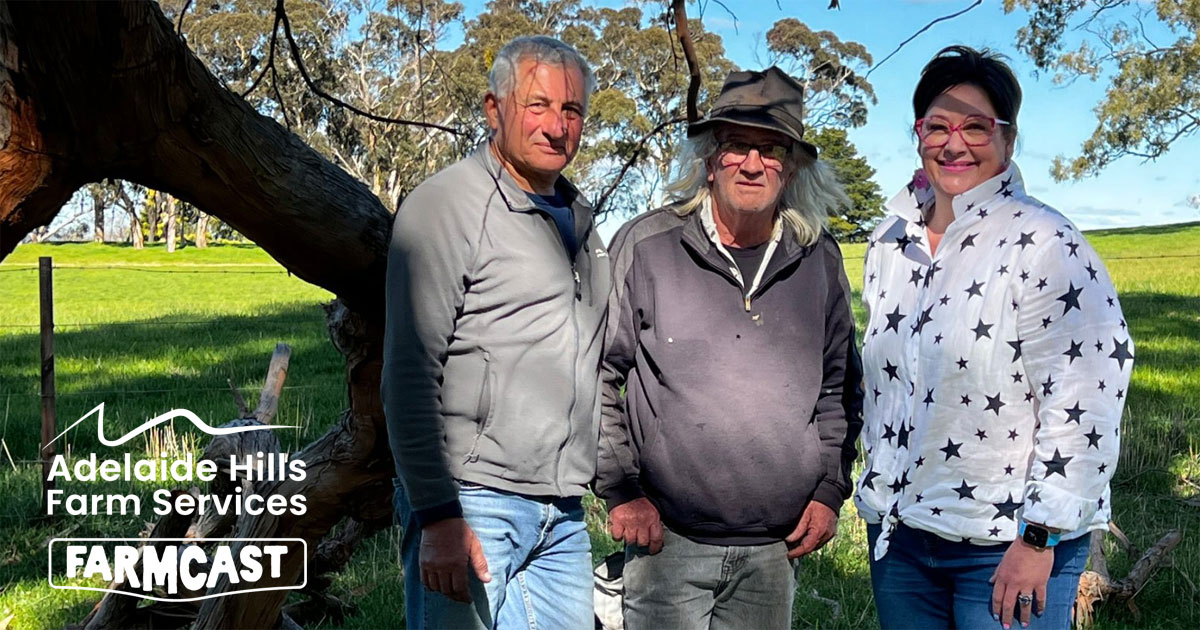
Maccy Biochar operates a not for profit community biochar centre in Macclesfield, South Australia. We take your dead woody material and convert it to biochar to use as the basis for earth-friendly fertilizers for home and farm; and for other biochar-based products.
And here’s a video of Belle’s biochar visit.
